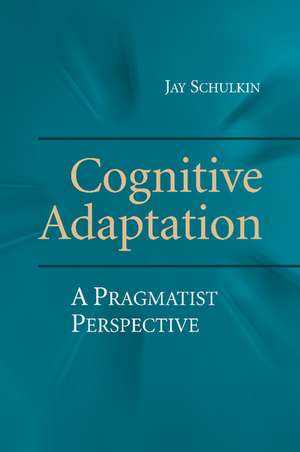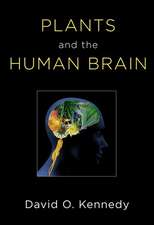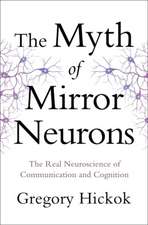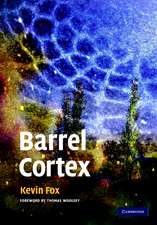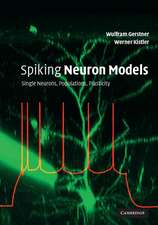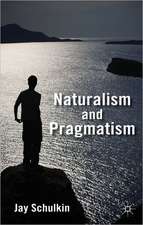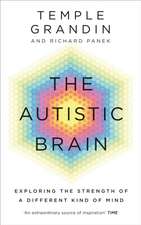Cognitive Adaptation: A Pragmatist Perspective
Autor Jay Schulkinen Limba Engleză Paperback – 5 noi 2014
| Toate formatele și edițiile | Preț | Express |
|---|---|---|
| Paperback (1) | 287.01 lei 43-57 zile | |
| Cambridge University Press – 5 noi 2014 | 287.01 lei 43-57 zile | |
| Hardback (1) | 723.27 lei 43-57 zile | |
| Cambridge University Press – 21 sep 2008 | 723.27 lei 43-57 zile |
Preț: 287.01 lei
Nou
Puncte Express: 431
Preț estimativ în valută:
54.94€ • 59.69$ • 46.18£
54.94€ • 59.69$ • 46.18£
Carte tipărită la comandă
Livrare economică 21 aprilie-05 mai
Preluare comenzi: 021 569.72.76
Specificații
ISBN-13: 9781107462717
ISBN-10: 1107462711
Pagini: 210
Dimensiuni: 152 x 230 x 10 mm
Greutate: 0.29 kg
Editura: Cambridge University Press
Colecția Cambridge University Press
Locul publicării:New York, United States
ISBN-10: 1107462711
Pagini: 210
Dimensiuni: 152 x 230 x 10 mm
Greutate: 0.29 kg
Editura: Cambridge University Press
Colecția Cambridge University Press
Locul publicării:New York, United States
Cuprins
1. Cognitive adaptation: objects and inquiry; 2. The human situation: uncertainty and adaptation; 3. Time and memory: historical sensibilities; 4. Education: learning from others, neurogenesis; 5. Cognitive and neurobiological basis of religious inquiry.
Recenzii
“Professor Jay Schulkin is in a rare class of writers, as at home in the fields of philosophy of mind and cognitive science as he is in the fields of neuroimaging and neuroscience. Here he has produced a wide ranging book that reveals his endless appetite for asking deep and searching questions about the evolution of the mind, and that will stimulate the reader to want to read more about how the mind works.”
—Simon Baron-Cohen, Director, Autism Research Centre, Cambridge University
“Cognitive Adaptation represents the culmination of Jay Schulkin’s exploration of the origins of human mind, thought, and language from our ongoing embodied engagement with our physical environments, our coordinated social interactions, and our emerging capacities for symbolic communication. Schulkin is one of a handful of philosophically sophisticated experts in physiology and neuroscience who are able to sketch the broader picture of human nature, human meaning, and human thought entailed by his naturalistic, embodied view of the person. Drawing on his vast interdisciplinary knowledge of fields such as neuroscience, psychology, anthropology, philosophy, and theology, Schulkin provides a rich and compelling pragmatist view of knowledge, social interaction, values, education, and spirituality. The result is a scientifically well-informed yet humane and inspiring vision of human life.”
—Mark Johnson, Knight Professor of Liberal Arts and Sciences, Department of Philosophy, University of Oregon
“Perhaps the most pressing long-term challenge for cognitive neuroscience is the development of a theory that addresses the mid-level between neural systems and consciousness and that explicates their relationship. Jay Schulkin is one of a few people who has both the biological and philosophical background to take on this challenge. His powerful and provocative theory, which he calls cognitive adaptation, will deeply influence those who follow in this difficult and exciting work.”
—Jonathan D. Moreno, David and Lyn Silfen University Professor, University of Pennsylvania
—Simon Baron-Cohen, Director, Autism Research Centre, Cambridge University
“Cognitive Adaptation represents the culmination of Jay Schulkin’s exploration of the origins of human mind, thought, and language from our ongoing embodied engagement with our physical environments, our coordinated social interactions, and our emerging capacities for symbolic communication. Schulkin is one of a handful of philosophically sophisticated experts in physiology and neuroscience who are able to sketch the broader picture of human nature, human meaning, and human thought entailed by his naturalistic, embodied view of the person. Drawing on his vast interdisciplinary knowledge of fields such as neuroscience, psychology, anthropology, philosophy, and theology, Schulkin provides a rich and compelling pragmatist view of knowledge, social interaction, values, education, and spirituality. The result is a scientifically well-informed yet humane and inspiring vision of human life.”
—Mark Johnson, Knight Professor of Liberal Arts and Sciences, Department of Philosophy, University of Oregon
“Perhaps the most pressing long-term challenge for cognitive neuroscience is the development of a theory that addresses the mid-level between neural systems and consciousness and that explicates their relationship. Jay Schulkin is one of a few people who has both the biological and philosophical background to take on this challenge. His powerful and provocative theory, which he calls cognitive adaptation, will deeply influence those who follow in this difficult and exciting work.”
—Jonathan D. Moreno, David and Lyn Silfen University Professor, University of Pennsylvania
Notă biografică
Descriere
Argues that there is a fundamental, evolutionary link between cognitive systems and evolution that underlies human activity.
